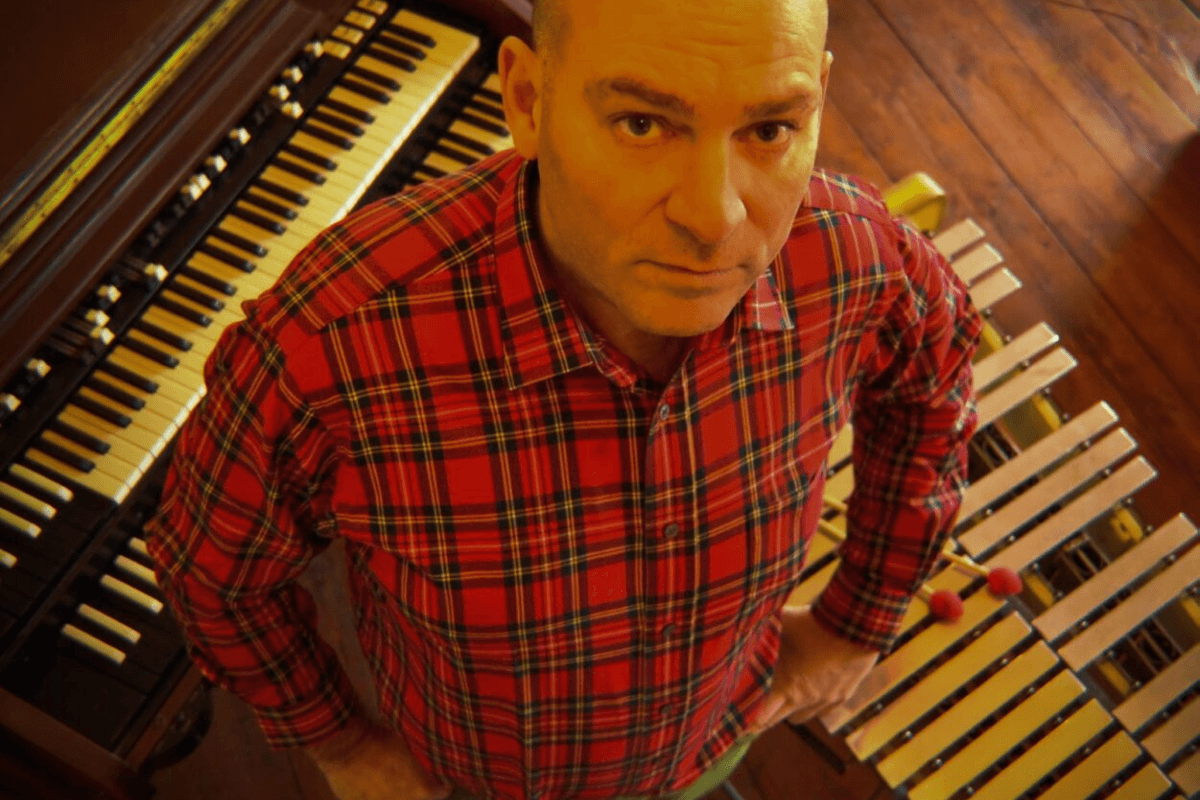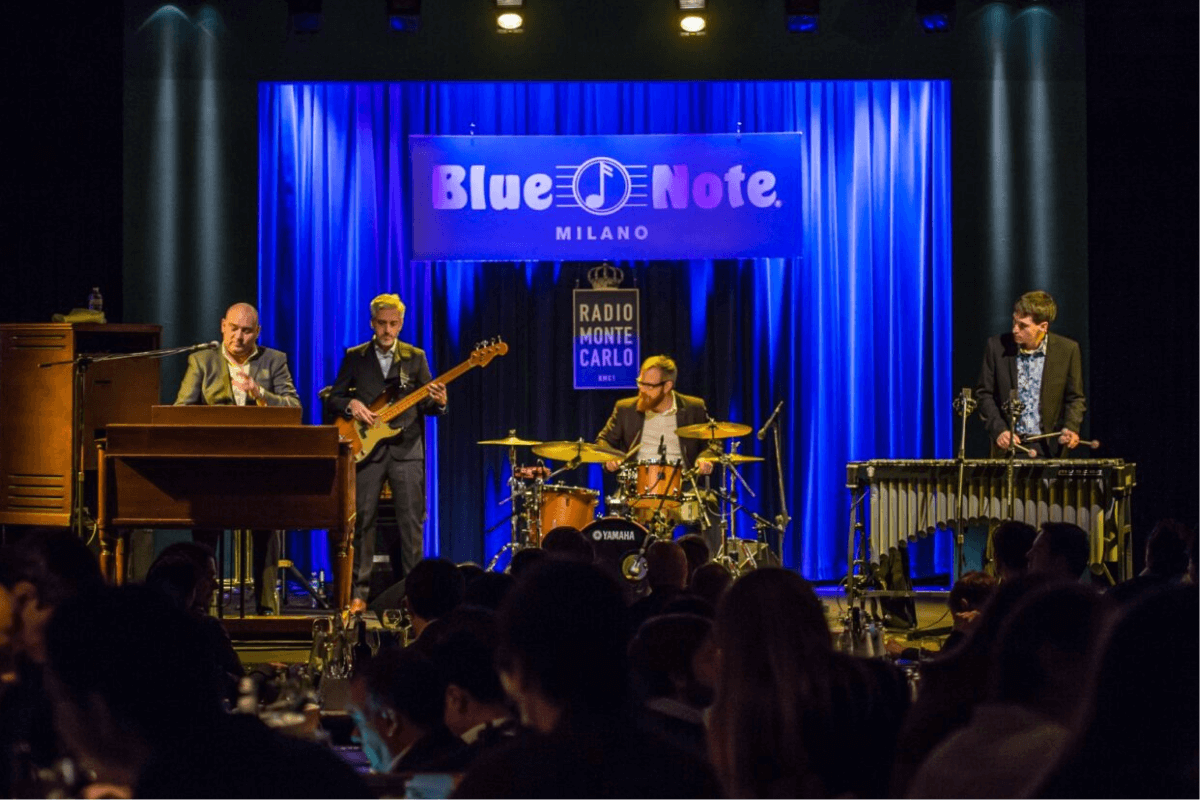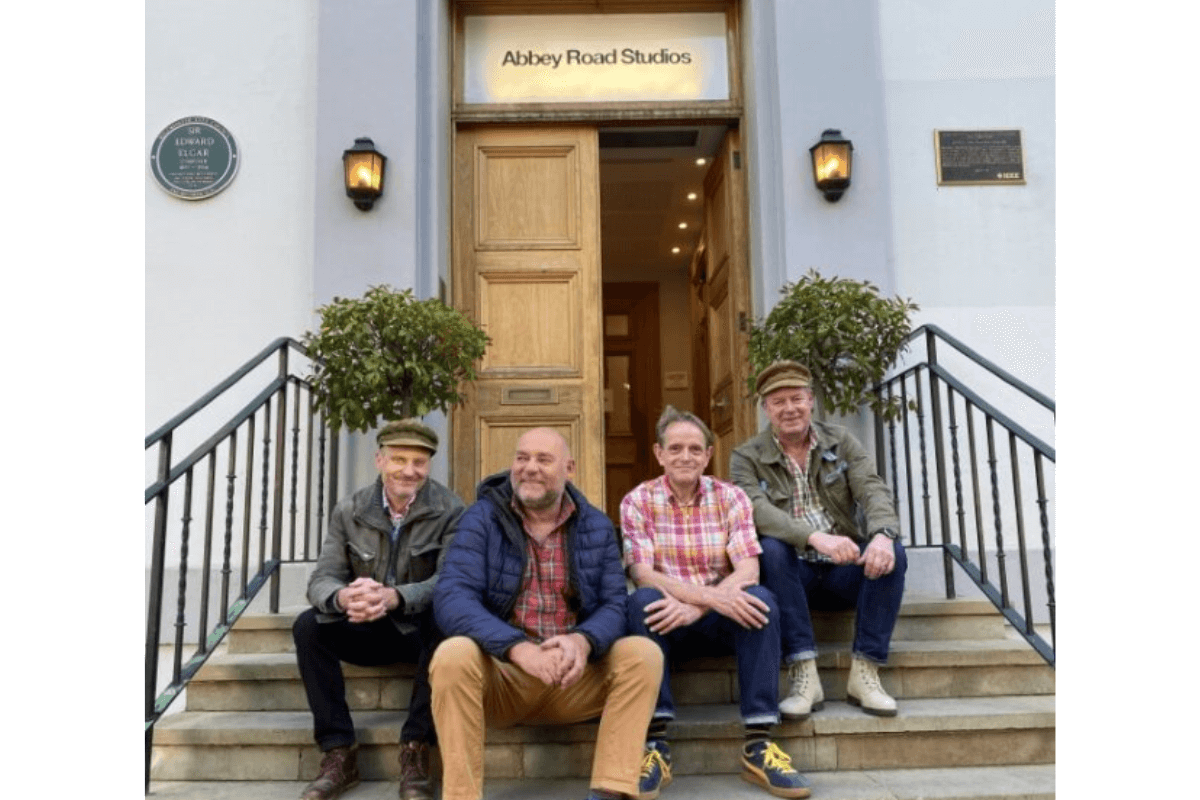James Taylor was fourteen years old when he first heard the sound that would ignite his senses and define his career for decades to come. It was a Hammond B3 organ, played by Memphis soul legend Booker T. Jones. For Taylor, who was born and raised in Rochester, Kent, it was little short of a revelation.
“I didn’t know what the sound was, I just thought ‘Oh my God, what is that? It's so electric and distorted’. I was obsessed, you know? It was strange and life-changing.”
I got a job washing up in a restaurant and saved up 200 quid and got my first Hammond
It was Taylor’s school friend Allan Crockford who explained what the instrument was and that it was generally paired with a rotating Leslie speaker to give it a rich, pulsating sound. Taylor wasted no time in tracking a Hammond down in Rochester.
“In those days, every town had a little kind of Hammond organ, you know, like for //Blue Spanish Eyes// type of music. I got a job washing up in a restaurant and saved up 200 quid and got my first Hammond, an M100, as played by Keith Emerson in The Nice.”
Taylor would go on to join Crockford in seminal psych mod revival band The Prisoners in 1982 and when they disbanded, four years later, he formed influential jazz-funk band The James Taylor Quartet, who would become renowned for their live performances. Over four decades on, as The Prisoners reform for a one-off show at London Roundhouse on 24 May 2024, Taylor looks back over his career, his collaborations and his relentless creative drive.
 "Nothing makes me happier than writing music" says James Taylor, pictured here in his home studio. Image credit: Margherita Taylor.
"Nothing makes me happier than writing music" says James Taylor, pictured here in his home studio. Image credit: Margherita Taylor.
Turning pro with The Prisoners
Taylor’s entry into the music profession was relatively straightforward. Taught piano by his grandmother at the age of five, he honed his chops with “a few more lessons here and there” and by the time he joined The Prisoners while at secondary school, they were already a busy touring band.
By 17, I was in the back of a bus on the way to tours of Europe.
When Taylor left school at seventeen, the band had turned pro. “I got a Leslie and we put it in the back of the transit van and off we went to the Hope & Anchor,” he says. “I’d joined a band that was already touring. So by 17, I was in the back of a bus on the way to tours of Europe.”
The band were part of the vibrant so-called Medway scene, a clutch of acts from the Medway towns of north Kent, including The Milkshakes featuring BIlly Childish.
The Prisoners released four albums before splitting in 1986 after a tour supporting The Ramones. Their defining songs include signature song //Melanie// and the classic //Whenever I’m Gone//. The Roundhouse reunion show in May 2024 came about quite naturally and effortlessly, says Taylor.
“I was jamming with another band in a club and one of the guys was there and then the other guy from the Prisoners was, and then it turned out that all four of us were there. So we were all playing on stage together in a little knockabout and then it just sort of just felt like, ‘Oh, this is really good’. It was immediate, and it felt bloody electric… incredible. As soon as we started playing, it was like, ‘oh yeah, that's it’. Since then we've been writing music and that has been really good. It's woken up a lot of things.”
The James Taylor Quartet: jazz funk with real “oomph”
Following the break-up of The Prisoners back in 1986, Taylor formed The James Taylor Quartet with Crockford. The James Taylor Quartet carved out a cool, upbeat groove-infused sound, jazz-funk with “a bit more kind of oomph and sort of punky”. Jimmy Smith and Booker T Jones were major influences.
Taylor was also a big fan of 60s film music and JTQ’s first single //Blow-Up// was a funked-up version of Herbie Hancock’s main theme from the seminal 60s film of the same name.
Film music became a core theme for the band. Their seven-track mini album //Mission Impossible// (1987) featured covers of film themes such as //Alfie//, //Mrs Robinson// and //Goldfinger//, with Taylor’s organ a prominent part of the sound. Second album //Money Spyder// in the same year was the soundtrack to an imaginary espionage thriller and featured Taylor’s own compositions.
 The James Taylor Quartet onstage at The Blue Note in Milan, 2017. Image credit: Francesco Prandoni/Getty Image.
The James Taylor Quartet onstage at The Blue Note in Milan, 2017. Image credit: Francesco Prandoni/Getty Image.
Building a live reputation
From the outset, the JTQ were a dynamic live act, a band that really got people up on their feet. Like all the 60s films that he loved, Taylor’s vision for his band would be as the combo in the background. But the reality was far different.
“I wanted it to be like the band in the corner, not the band on stage,” he explains. “At the time I was a fan of those sort of party sequences in films, you know, Peter Sellers films where there's an amazing party in the corner and I wanted it to be that band… But when you get to the gig there's a bloody great PA and a big lighting system. We never were that. It took some getting used to because I wasn't a natural front man.You end up with 400 people staring at you.”
And they were soon playing to much bigger audiences. “There was some nice radio, some nice support slots, and then big gigs,” recalls Taylor. “It culminated with us selling out Brixton Academy, which is 6,000 tickets.”
The James Taylor Quartet were defined as acid jazz, the genre that originated in London clubs in the mid-80s. “We were part of a movement of bands that all played together, like Galliano, Brand New Heavies, Jamiroquai,” says Taylor.
Working in Europe and the impact of Brexit
By the early 90s, the band had released a string of song-based albums aimed firmly at the soul and acid jazz market. They added vocalists such as Rose Windross of Soul II Soul, Alison Limerick and Noel McKoy. In 1995, they released their biggest selling album //In The Hand Of The Inevitable//.
“Big Life Records pushed us in a poppy direction and that sold, but it was sort of a smooth glide from there,” recalls Taylor. “We went back to being a four-piece in a transit van.”
The band returned to its jazz-funk roots and resumed touring. Europe was a rich source of work. France and Switzerland have been strong live markets for the band, although Italy is the country that has really taken the James Taylor Quartet to its hearts. “Italy was, for some reason, always hungry for more,” says Taylor. “And still is. They really like Hammond. They’re really, really crazy about it. Brian Auger does well down there.”
For musicians trying to take their gear across to Europe… it's just impacted in such a negative way as we all know
All of which leads to the inevitable issue of Brexit, and the impact on the band’s work opportunities in Europe.
“I was furious about it and I can't find any musicians who don't see it the same way. I saw Boris Johnson coming and I could see it a mile away where we were going. It's just such a backwards step, and then for musicians trying to take their gear across to Europe… it's just impacted in such a negative way as we all know.”
Creative collaborations
Taylor is a restless creative spirit. In addition to his role as bandleader of JTQ he writes and produces library music albums for the media industry, spanning classical, jazz, funk and rock.
He has also been involved in some innovative collaborations. On 6 May 2011, Taylor performed a Nitin Sawhney-composed work at the Royal Albert Hall, playing the huge in-house organ with its 9,999 pipes. Taylor and Sawhney were childhood friends and the Royal Albert Hall performance had a profound impact on Taylor.
“Oh, it was spectacular, really, really wonderful,” he says. “And they allowed me ages, so I could go up there for about five days to rehearse. And I did, I just went up there and sat at this thing and just blasted the roof off the place with no-one else in there. That really did go deep into my soul that instrument. It was lovely because Nitin was a close friend at school and we had a little band.”
In November 2023, Taylor staged a jazz festival in Rochester Cathedral, programming a bill that included Ronnie Scott’s Big Band, Billy Childish, the Chatham Singers and JTQ. He has a long relationship with the cathedral. Back in 2015, inspired by the passing of his father Clive, Taylor wrote a mass in Latin and set music to it. The work was entitled //The Rochester Mass// and JTQ and Rochester Cathedral Choir performed the work at the Queen Elizabeth Hall in spring 2015.
“Funnily enough, it was ever so well received,” says Taylor. “I thought it would get slaughtered. It’s nice when these two worlds collide. And it was very joyous, actually making the record, which was done in six hours at Angel Studios. I just banged it all down… then we added some reverb.”
JTQ also performed the work with the choir at Ronnie Scott’s. “They had their extended 60-piece choir and they made a lovely sound,” recalls Taylor. “We just played as quietly as possible.”
Over the years, JTQ have featured on records by bands such as U2, Manic Street Preachers, The Wonderstuff and The Pogues. They contributed to the soundtrack of the first Austin Powers film and have recorded three albums under the name New Jersey Kings, an outfit still based on the core funky Hammond sound but with a rawer, live sound. Another creative high point came in November, 2018, when the James Taylor Quartet were backed by a full orchestra at Cadogan Hall, for their album Soundtrack From Electric Black.
Seeking out challenges
This year looks set to be a busy year for James Taylor. In addition to The Prisoners live reunion, he and the other band members have written, recorded and mixed an album ready for release in early 2024.
 The reformed line-up of The Prisoners outside Abbey Road Studios in autumn 2023. Image credit: The Prisoners.
The reformed line-up of The Prisoners outside Abbey Road Studios in autumn 2023. Image credit: The Prisoners.
Meanwhile JTQ will be playing some select dates, including a concert at the Barbican Centre, London on 2 April accompanied by a full orchestra, performing their latest album, Man In The Hot Seat (2022).
“I've also been speaking to a classical label and they're interested in doing something with me, which is going to be strings, piano, and maybe flute. I've written some music for that. It sounds sort of Steve Reich-ian, minimalist.”
For Taylor, the real drive is to keep seeking out innovative projects and challenge himself creatively. “I live on it, mate,” he enthuses. “Nothing makes me happier than writing music. Right. So when I wake up in the morning and I've got a tune in my head, then that is cool, it’s brilliant. I'm going to have a good day, you know.”
Find out more about James Taylor Quartet and The Prisoners Roundhouse reunion concert.
James Taylor On The MU
“I'm very happy to be a part of the Musicians’ Union. Anything that stands up for the rights of musicians. I’ve seen musicians getting exploited all my life, saying, ‘Yeah, I'll do it, I'll do it. I don't care. I'll pay to do it. It doesn't matter’.”
There's plenty of people that are very happy to exploit musicians. And you've got a body that is prepared to stand up for them. So I'm a full supporter and always have been a fully paid-up member. I'm very, very happy about it. All power to your arm.”